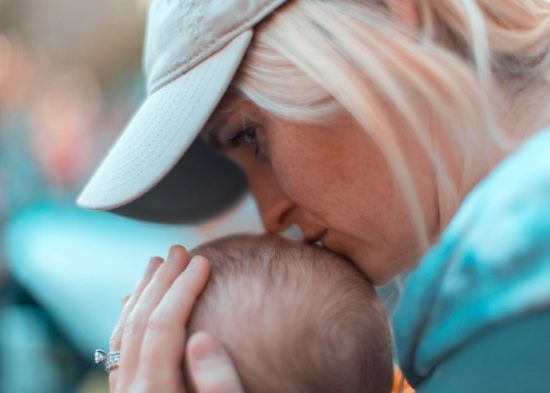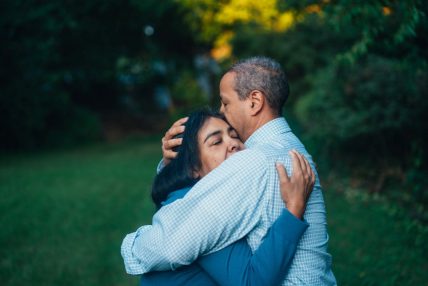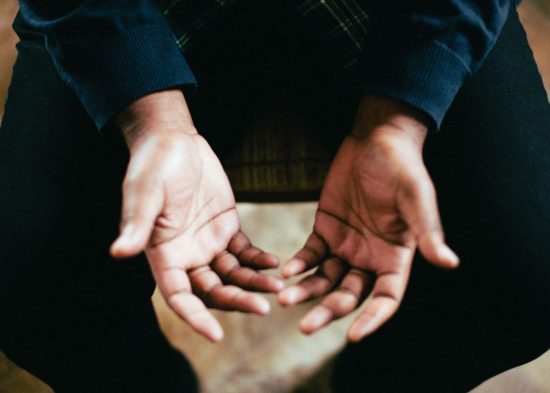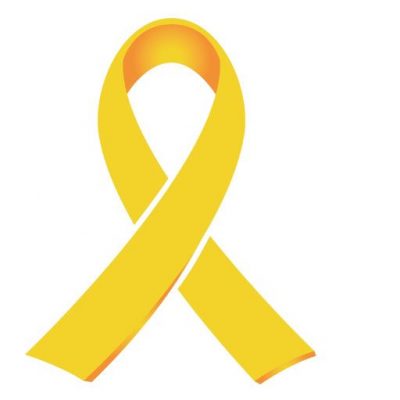
Responding to a cancer diagnosis as a friend, family member or a simple acquaintance can feel like an impossible task. The whirlwind of emotion can easily make both parties feel like there is no right way to take this information in, let alone respond in a reasonable way.
My pediatric cancer support group frequently talks about frustrating responses to the statement “My daughter/son has cancer.” but you could easily argue “Is there really a correct response?”
When I received my daughter’s cancer diagnosis I immediately went into “doctor mode” and started treating her like a beloved patient. I called specialists, did research and literally ran around the hospital to get her the best possible care without processing the news like a parent. If someone had told me that day “The world’s best pediatric oncologist is in Timbuktu, I would have booked us tickets immediately.
This flurry of activity was all a defense mechanism to avoid feeling the inevitable helplessness that occurs when something is truly out of your hands. For a type A person like me, feeling helpless is like an atomic bomb blast inside my soul.
Once I “slowed my roll” and started to process what was going on as a parent, I found people’s reaction to her diagnosis wide and varied.
From my first hand experience, I’ve included some general guidelines of “how to react to news of a child’s cancer diagnosis”. While nothing you say will be perfect, I feel like a guide to navigate this difficult conversation is helpful.
Telling family about a child’s cancer diagnosis

I decided to keep my daughter’s diagnosis a “secret” until I could provide our immediate relatives with some pertinent facts. Instead of spinning them into that helpless feeling right along with us, I waited until I spoke with her oncologist so I could at least react with facts, not fiction.
For our family, handing the news this way worked very well. Aly’s Dad called my mom, had her sit down and said “The mass in Aly’s belly is most likely kidney cancer, but we are already working with one of the nations best oncologists who has a solid plan in place to beat this.”
My mom specifically wanted me to write about this because she felt like if she had to receive this news about her granddaughter, this was the best possible way.

I also specifically warned them to NOT google “pediatric kidney cancer”! I had made a short list of reliable websites that would give them evidence based information.
The national Pediatric Cancer Foundation is a great place to start for many forms of pediatric cancer.
What NOT to say
While everyone’s experience is personal, I can say that a few responses should just be avoided.

– Try not to react disproportionately to the parent of the sick child. If that parent is screaming and rolling about on the floor, a strong reaction from you may be ok. But if the parent is doing their best to hold it all together and pass on the news calmly, a much more soft and gentle reaction would be expected.
Think about it, when communicating bad news you want to feel heard and understood. When the listener responses similarly, but slightly less strongly than you have, the speaker feels that they are supported.
– “My friend’s child had cancer….but she passed away.” The most important and fragile thing for a parent is hope. I felt like mine was tested on a daily basis.
Communicating with other parents that were experiencing a similar diagnosis was very important to me, but even with all my medical training, I couldn’t even read about other people’s struggles for the first few months. I presume that my mind was just so overwhelmed with placing one foot in front of the other that I couldn’t absorb anything else.
If you want to help that parent connect with others, try to make sure the connection you are providing is appropriate for the stage their child is in. (ie. A parent of a hospitalized child may not want to hear from a parent whose child is able to be outpatient.)
Simple statements that can be helpful

Simple statements that I found the most helpful from anyone, especially when unsure what to say include:
- “I would like to pray for you and your daughter”
- “My family and I will keep your daughter in our thoughts”
Sometimes there are no words but actions can speak louder than words:
Complete strangers have come up to me at the park and handed me a $20 bill and said “please use this to do something special with her.”
At the hotel in Cincinnati, we have had anonymous gift bags and notes left for us by beautiful, caring people that see her in the lobby and want to provide her with a new coloring book or soft animal to cuddle.
All of these simple gestures of kindness really speak volumes when words feel incomplete.
Just show up
Just having something done for you without having to ask can be a great blessing. Many people don’t know how to ask for help and by taking the initiative and solving a problem for them, you can really make a difference in the nightmare they are dealing with.

What can you do for a parent whose child has cancer?
- Set up a meal train. The website www.mealtrain.com provides a platform for coordination of meal delivery, gift cards and even plain cash donations, all with just a few easy steps. A good friend did this for me with a website that is simple to use and very helpful.
- Create a private Facebook page for the parents to update friends and family on in one location. Obviously, ask if this ok with the parent first! One of my best girlfriends did this for me and managed how distant friends could provide support.
3. Arrange childcare for siblings who are not undergoing treatment so they don’t feel left out. Remember that the child undergoing chemotherapy will have their immune system compromised, so try to avoid places that the siblings could get sick or bring home a virus. We did take Aly’s brother and sister out on special trips to the zoo, park, etc but we always had antibacterial hand wipes with us to use after touching any communal surfaces and before eating. (I’ll be posting a guide to preparing your house for an immunocompromised child next week.)
4. Provide prepaid gift cards for Amazon, gas or groceries. These incidentals are often over looked but greatly appreciated!
Finally I would say that there may be NOTHING that you can say that “feels right”. However, continuing to support this family in whatever way you choose to is very important. Pediatric cancer is a long journey and your thoughtful support can make an incredible difference!

